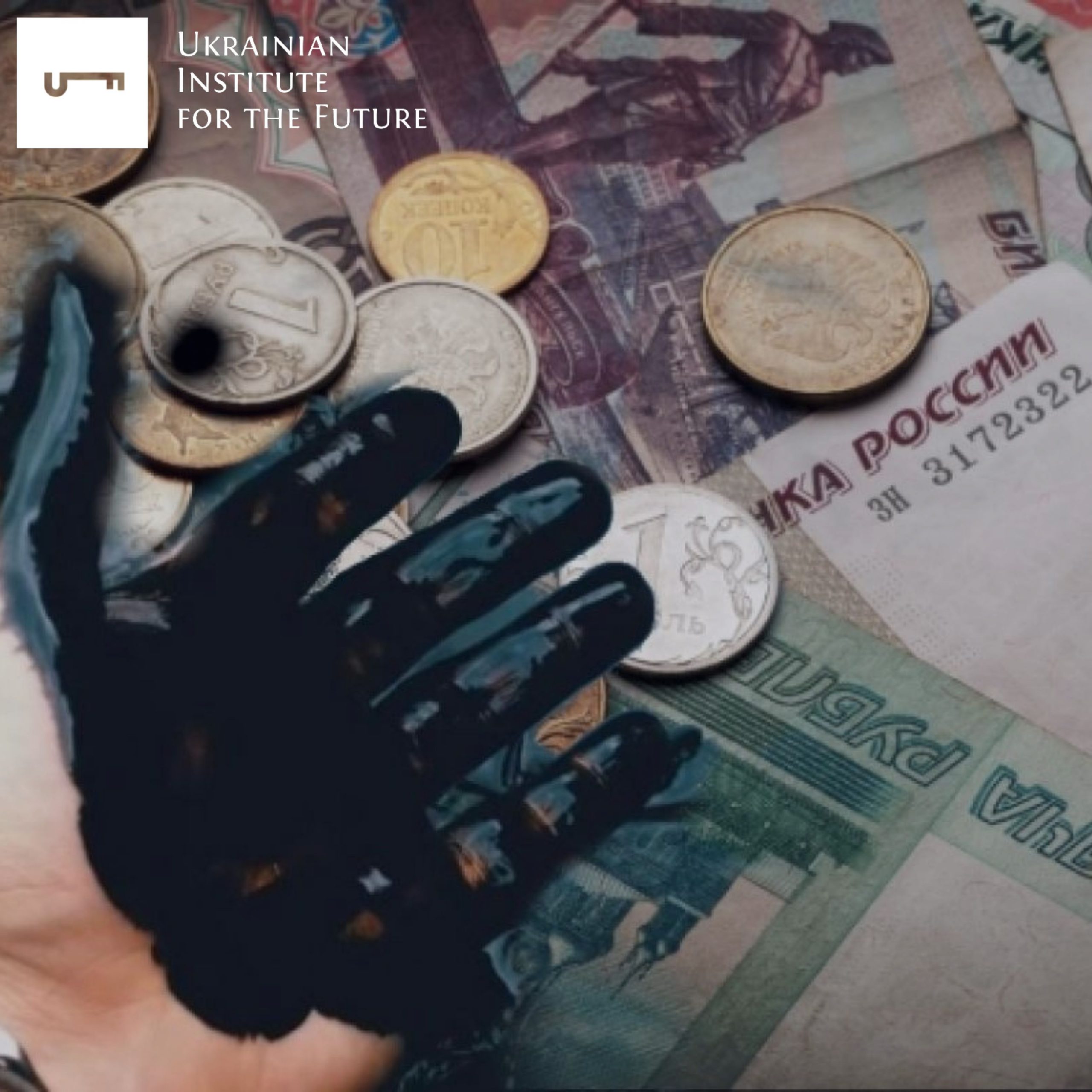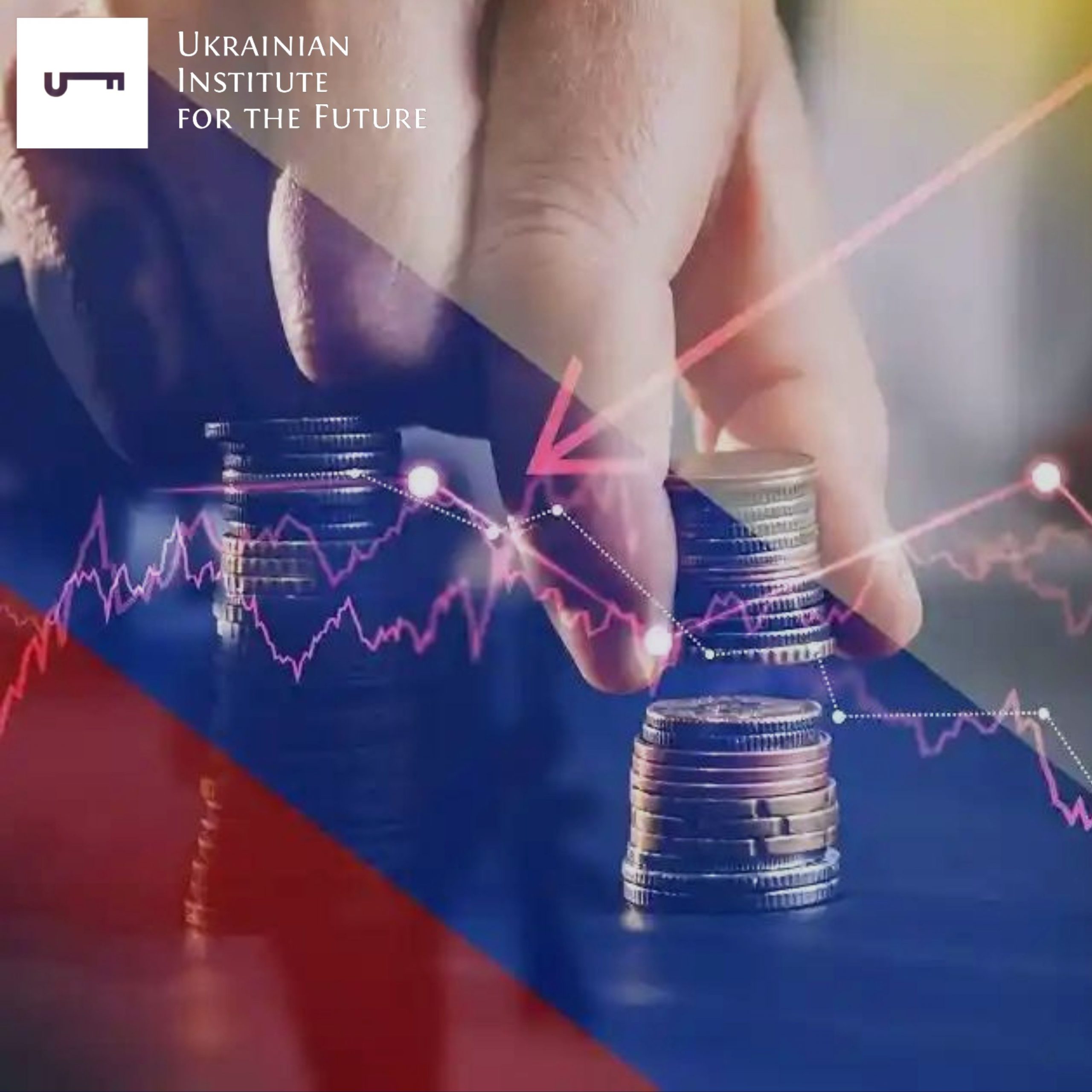A draft law on a one-off payment to the budget from large companies’ excess profits was approved by the Russian government on 13 June.
This is an expected step in the regime’s campaign to “unleash” Russian business and fill in the Russian budget. Earlier this year, the government collected “voluntary contributions” from big business. The most profitable companies were offered a “share”. For the same purpose, with the regime’s connivance, oil trading companies have been set up as shell companies to evade the price ceiling, accumulate profits outside Russia and from which a “voluntary contribution” can also be collected at any time. A tax mechanism has now enshrined this measure in law.
For companies with average pre-tax profits of more than RUB 1 billion in 2021-2022, the contribution will be 10% of the difference in profits between 2021-2022 and 2018-2019. The Ministry of Finance proposes a reduction of the tax rate to 5% for companies that pay the tax between 1 October and 30 November 2023.
It is estimated that RUB 300-470 bn (or 5-9% of the expected budget deficit in 2023) will be added to the budget as a result of the windfall tax. The windfall tax is expected to collect 85 per cent of all revenues from industries closely related to commodity exports.
An exception will be made for the following:
- small and medium-sized enterprises;
- organisations paying the single agricultural tax;
- companies established after 2020;
- oil, gas and coal companies.
This year, the latter have already been subject to additional charges from the mineral extraction tax (MET) and from the motor fuel damping tax. The State Duma has passed a budget bill. Among other things, it increases the tax burden on Russia’s oil and gas industry in 2023-2025. The document provides for the following:
- From 1 January 2023, adjustment of the tax rate used to calculate the MET on natural gas.
- Additional RUB 50 billion per month (total RUB 1.8 trillion) withdrawal from Gazprom in 2023-2025.
- An increase in the corporate income tax rate for exporters of liquefied natural gas to 34% in 2023-2025.
Budget revenues from MET are expected to increase by a total of RUB 629 bn in 2023-2025 as a result of the statutory increase in the tax burden. The budget will receive an additional RUB 30 bn from a temporary increase in MET rates by RUB 380 per tonne for all types of coal except lignite.
As a reminder, almost RUB 1.6 trillion has already been withdrawn from Gazprom’s profits in 2022 to finance budget expenditures, including a one-off payment of the MET.
Tax tightening is inevitable
The law on windfall tax is not an isolated event. It is part of a trend that is emerging in Russia – a trend towards increased tax pressure and manual management of the economy. Other signals also suggest that:
- The Ministry of Finance already has plans for an increase in the MET on coal in the fourth quarter of 2023.
- The government has submitted a draft law to the State Duma on an increase in taxes for Russians working abroad (30% of income from Russia).
- The St. Petersburg International Economic Forum (SPIEF) discussed raising taxes, but no clear answer was given. Representatives of the Russian government’s economic block spoke of the inevitability of raising taxes if the current spending policy is maintained. Significantly, the risks of returning to a command economy were highlighted by the head of the Central Bank of the Russian Federation, E. Nabiullina. This means that the process of “tightening the screws” on the Russian economy is well underway, with even Putin’s loyalists warning of the consequences of such policies.
Against the backdrop of a growing Russian budget deficit, this trend is taking shape. The Russian budget deficit has already exceeded the planned RUB 2.9 trillion deficit for 2023, reaching RUB 3.4 trillion in the first five months of 2023.
Budget revenues fell by 19% yoy to RUB 9.8 bn, which was expected as energy prices were at record highs this year and the Ministry of Finance managed to generate a budget surplus of RUB 1.5 trillion in the first half of 2022.
Simultaneously, expenditures for 5 months of 2023 increased 27% to RUB 13.2 trillion. In 5 months, 45% of the planned expenditures for 2023 have been spent, and in order to avoid a further widening of the deficit, tax increases are being considered as one of the ways to finance the budget.
According to our estimates, but not critical from the point of view of Russia’s fiscal sustainability, the 2023 budget deficit could reach RUB 5-6 trillion (3-4% of GDP). At least for this year, Russia certainly has the money to finance the war.
However, Russia’s tax burden is on the rise and will be for the foreseeable future. The budget deficit is growing, while oil prices are gradually falling. The percentage of people who are fed from the Russian budget is growing, and the economy is shrinking, excluding the cost of “weapons”.
What this means for the economy
It will definitely have a negative impact on the Russian economy if the budget deficit is covered by scaring businesses with higher taxes.
First, it deprives the economy of a much-needed domestic investment resource. Private investment will decline. This will provide no basis for economic growth in the medium and long term. And so far, there has been no prospect of any foreign investment in Russia.
Second, there is the deterioration of the investment climate and the business environment in Russia, which are already extremely unfavourable. Obviously, Western companies are no longer going to come to Russia, but that sends a negative signal to potential Chinese, Indian and United Arab Emirates partners on whom Russia hopes to rely.
Third, it will cause the shadow economy to grow.
Fourth, the state budget will receive fewer dividends. In 2022, 143 state-owned companies paid almost RUB 753 billion in dividends on their shares to the federal budget. Gazprom, Rosneft and Transneft, which are currently taxed, accounted for 88% of the total.
Fifth, it shows an increase in the role and share of the state in the economy. In Russia, the state is inefficient, corrupt and does not provide incentives for the country’s technological development.
Thus, Russia is in full swing in its attempt to “unleash” the economy and return to a command economy. And if the regime’s plan comes to fruition, it will have the most negative consequences for the Russian economy, which is withstanding the current sanctions and, one might say, doing well and financing the war precisely because of the adaptability and flexibility of a market economy. The resilience of the Russian economy will diminish as it moves towards fiscalisation and a planned economy.




